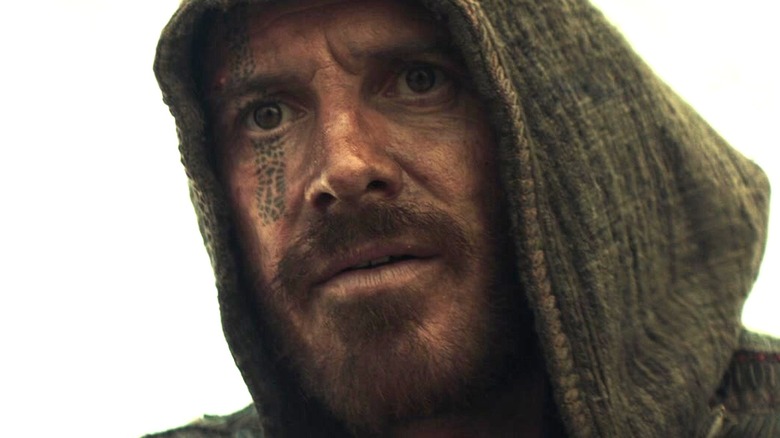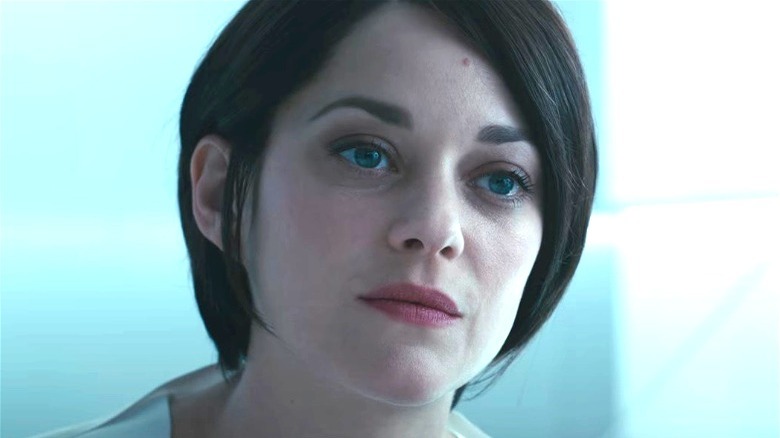Is Michael Fassbender's Assassin's Creed Movie Part Of The Games' Canon?
"Assassin's Creed" is a massive franchise in the video game industry, so it's no surprise that a studio would want to capitalize on its success and bring it to the big screen. That's exactly what 20th Century Fox attempted with 2016's "Assassin's Creed," though the Michael Fassbender-led movie ended up being pretty underwhelming. Still, Netflix has big plans for the franchise, including an anime adaptation and a live-action series.
The on-screen future for "Assassin's Creed" looks to be on the right track, but we don't yet know if any of these adaptations will be canonical to the games. In fact, fans are still confused over whether the 2016 movie is considered canon. While many of the games are connected to one another through recurring characters, the movie did not follow any video game characters. However, that doesn't mean it isn't part of the video game canon.
The Apple of Eden is one significant connection between "Assassin's Creed" and its video game counterparts. The apple is featured prominently throughout the franchise, with the Templars seeking to use its powers to control minds and cement their power over the world. "Assassin's Creed" followed this basic storyline, and the movie showed the Templars obtaining the weapon before being stopped by Fassbender and the rest of the Assassins.
Though The Apple of Eden plays a significant role in the movie, "Assassin's Creed" actually features even more subtle connections to the games.
Assassin's Creed is definitely canon to the games
Eagle-eyed fans have worked out that "Assassin's Creed" has several direct ties to many of the games in the franchise. When Michael Fassbender's Callum Lynch is first hooked up to the Animus, he sees many of his ancestors, including Arno Dorian, the protagonist of "Assassin's Creed Unity." What's more, Fassbender's four prominent allies in the movie are connected to Baptiste from "Assassin's Creed III: Liberation," Yusuf Tazim from "Assassin's Creed: Revelations," Duncan Walpole from "Assassin's Creed IV: Black Flag," and Shao Jun from "Assassin's Creed Chronicles: China."
Game developer Ubisoft would later cement "Assassin's Creed" into video game canon via Dr. Sofia Rikkin, played by Marion Cotillard. In the film, Sofia is the leading scientist on the Animus project and serves as the antagonist. It wasn't until the release of 2017's "Assassin's Creed Origins" that fans of the franchise began to understand her deep connection to the video games' lore.
In "Origins," modern-day protagonist Layla Hassan is revealed to have directly worked with Sofia to improve the Animus technology. Ubisoft didn't throw the connection in players' faces, however — they needed to find the information in Layla's emails. Her private messages also reveal that Layla was directly responsible for developing the six-axis arm attached to the Animus 4.3 in "Assassin's Creed." The addition of this arm allowed users like Fassbender's Cal to move freely while they studied and learned from their ancestors.

